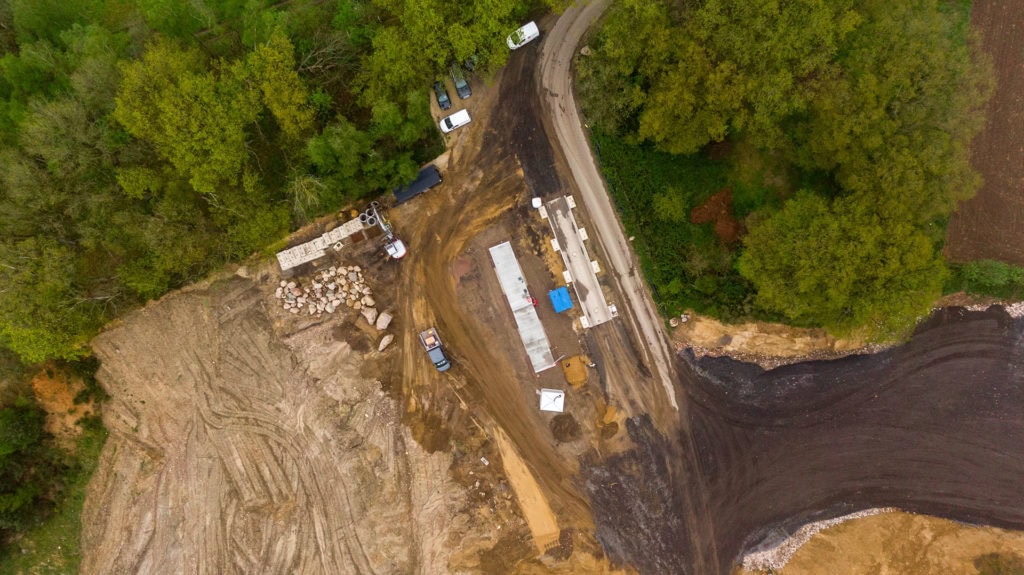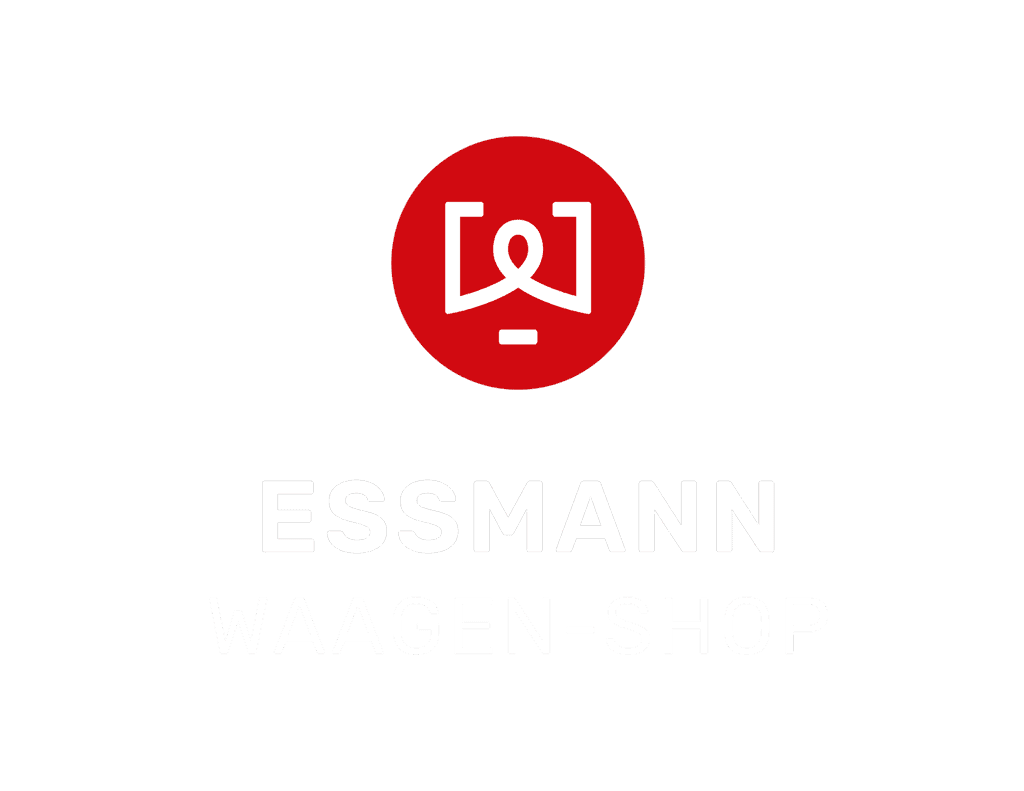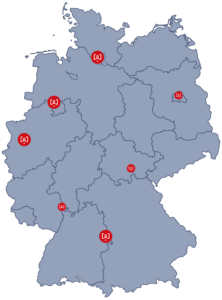This article was first published in thetrade journal GP Gesteinsperspektiven the official organ of the Federal Association of Mineral Raw Materials and its associations,Issue 5/2025
Where machines weighing tons work tirelessly, dust and weather put a strain on systems and networks often fail, weighing technology must be able to do more than just measure accurately. It must be robust, easy to operate and built to work reliably even under adverse conditions. In concrete terms, this means stable platforms, protected sensors, clever offline functions and an infrastructure that can be used without reliable network connection works.
Scales must measure precisely, work quickly and integrate seamlessly into existing processes – without complicated operation or technology that is prone to faults. This is because failures or inaccurate measurements not only mean additional expense, but also economic risks. The demands on design, ease of maintenance and data security are correspondingly high. Sophisticated weighing systems for rock excavation meet these requirements: They combine robust hardware with sophisticated functionality, creating a reliable basis for daily operation.
Weighing technology for bulk materials and heavy loads
Modern weighing technology offers solutions that are tailored to the needs of quarries and gravel plants. The most important types of scales:
Above-ground truck scales: These pitless, verifiable truck scales are installed above ground on concrete strip foundations and are supplied with prefabricated roadway plates. The above-ground design has advantages: Installation is quick and the scales can be relocated if necessary. The accessibility from above makes it easy to maintain and clean. Many weighbridges are made of high-strength reinforced concrete or steel and are designed for a long service life. The scales can be expanded with components such as traffic lights, barriers, remote displays, self-service terminals or smartphone apps to automate the weighing process.
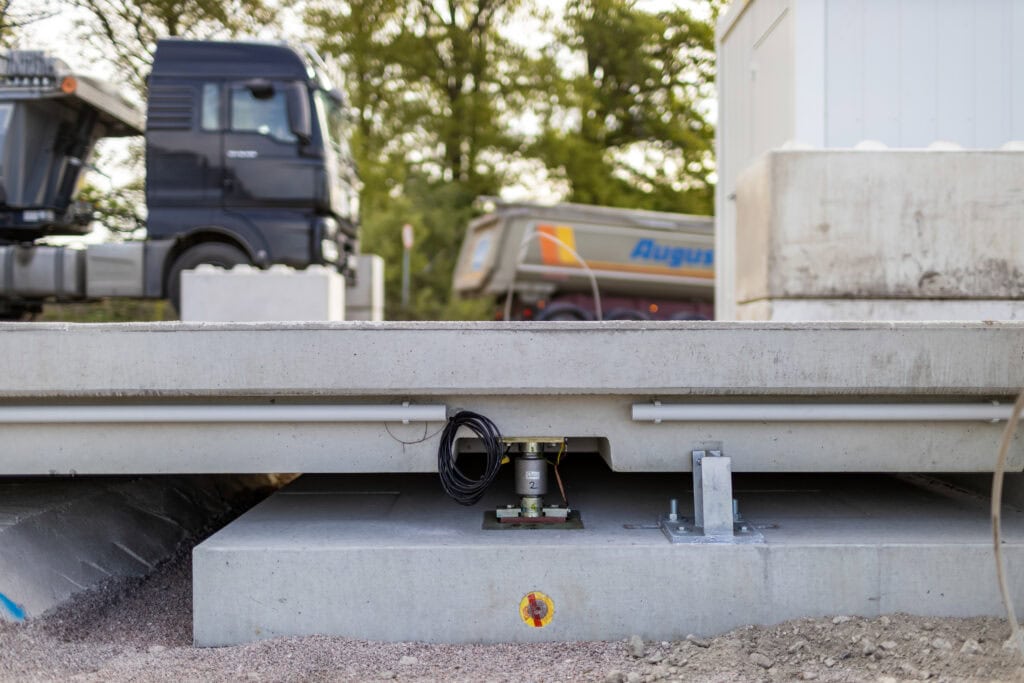
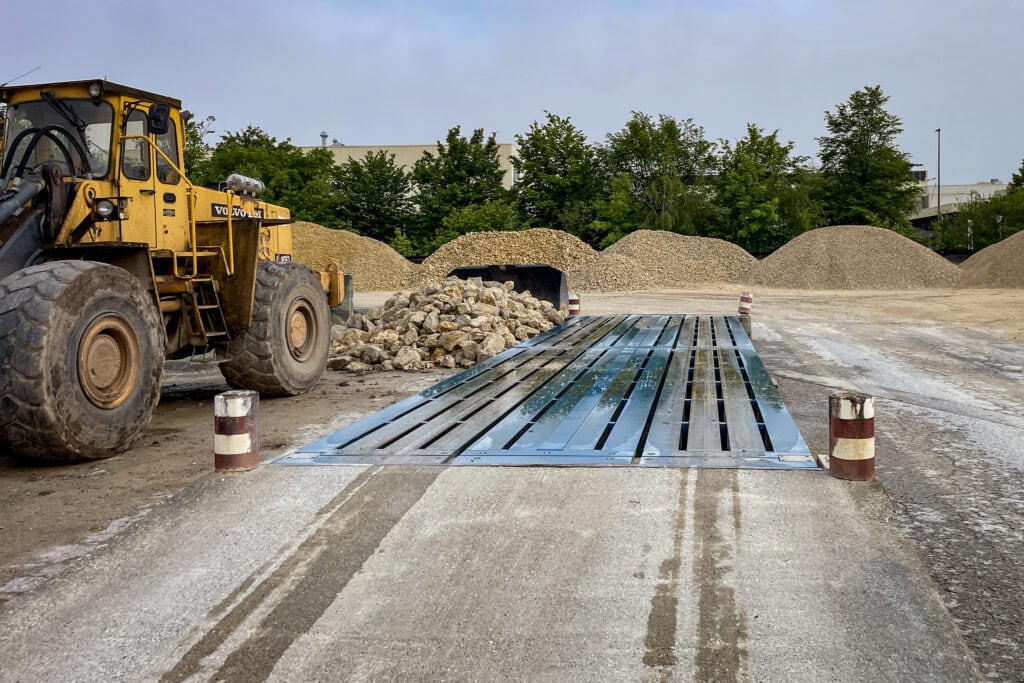
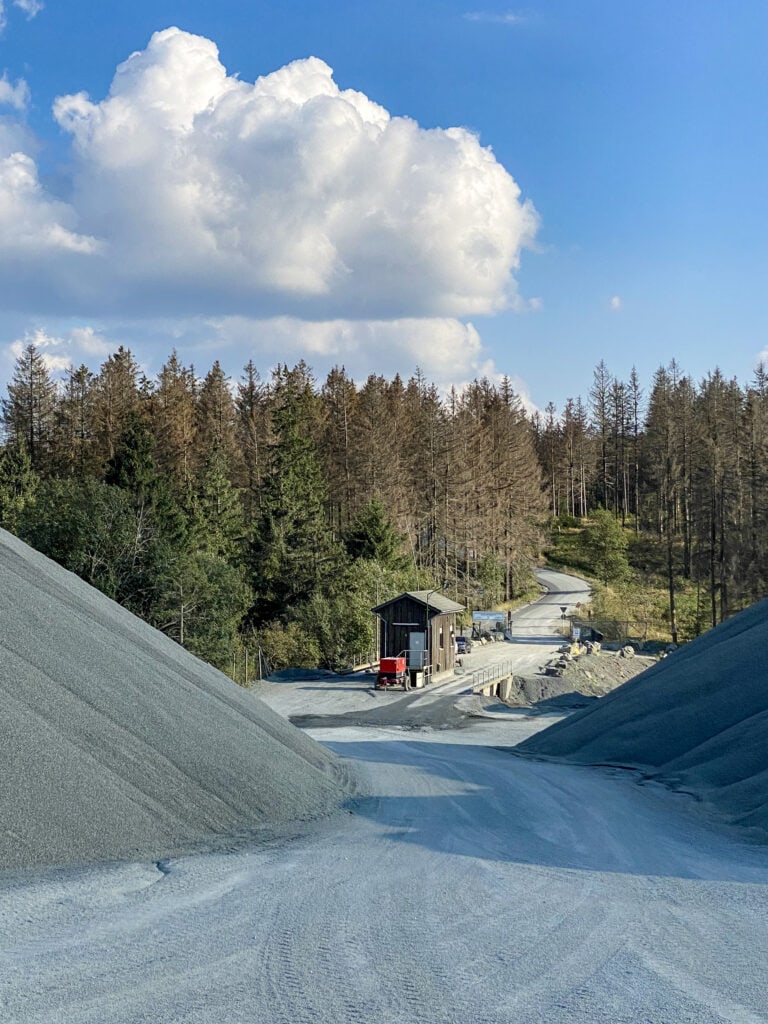
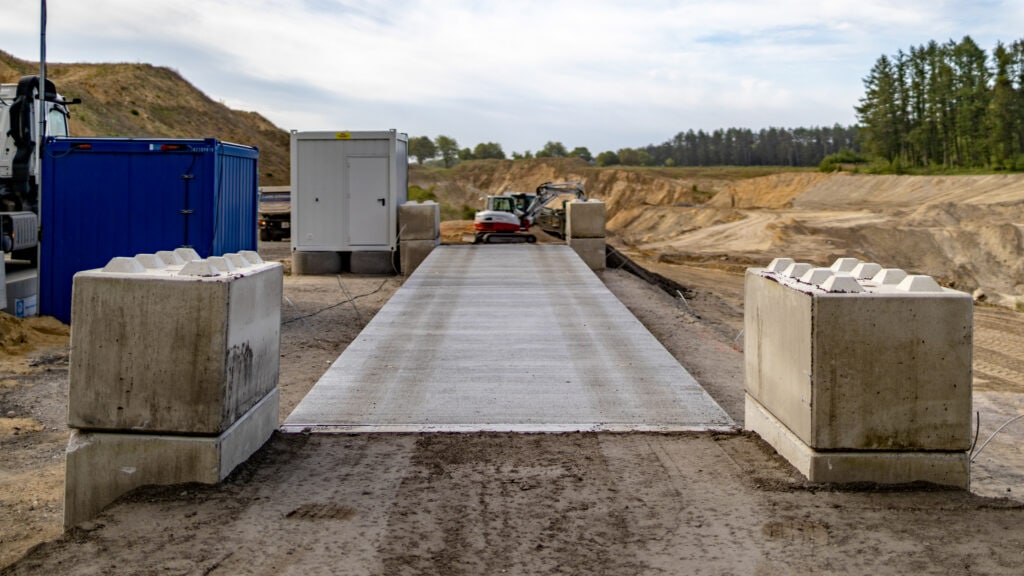
Hopper scales and belt scales: Hopper scales weigh bulk goods directly in the bunker or storage container, for example for automatic truck loading or for dosing different grain fractions. These systems can be seamlessly integrated into existing systems and enable precise quantity recording without additional vehicle weighing. Conveyor belt scales continuously record the material flow – ideal for throughput and inventory control.
Crane sc ales: Crane scales offer a flexible solution for bulky or difficult-to-move goods. They are suspended from crane systems or excavator arms and measure the weight of the load directly on the hook. This saves transportation to the scales. Crane scales are used when loading rocks, for example. Many models are hardened, sealed up to protection class IP67/IP68 and can carry loads from a few hundred kilograms up to 100 tons.
Analyticalscales/moisture analyzers: In gravel and crushed stone plants, they are used to examine material samples – for example to determine grain size, density or moisture content. Moisture analyzers analyze the water content of sand, gravel or soil by drying. Wet aggregates weigh more and can change mix recipes or invoices. Portable microwave moisture meters provide quick on-site results, while thermobalances determine precise percentages in the laboratory. These devices ensure product quality and fair billing.
Yard management software for efficient processes
In addition to physical weighing technology, digital solutions are becoming increasingly important for optimizing operations in quarries and gravel plants and maintaining control over stocks of stone and goods. Thanks to intelligent yard management, all movements and processes in the depot can be controlled – from the truck driving to the scales to loading and leaving. Paperwork and irregular invoicing are now a thing of the past.
One example is license plate recognition by camera: vehicles are automatically recorded at the yard gate or scales, which speeds up check-in. The software registers entry and exit times, tracks loaded tours and controls authorizations – for example, which vehicles are allowed to enter the site. The driver logs in at the self-service terminal without getting out of the vehicle. Weighing slips can also be printed and sent immediately and instructions for the loading point can be communicated. This speeds up registration and weighing, increases throughput and prevents congestion at the scales.
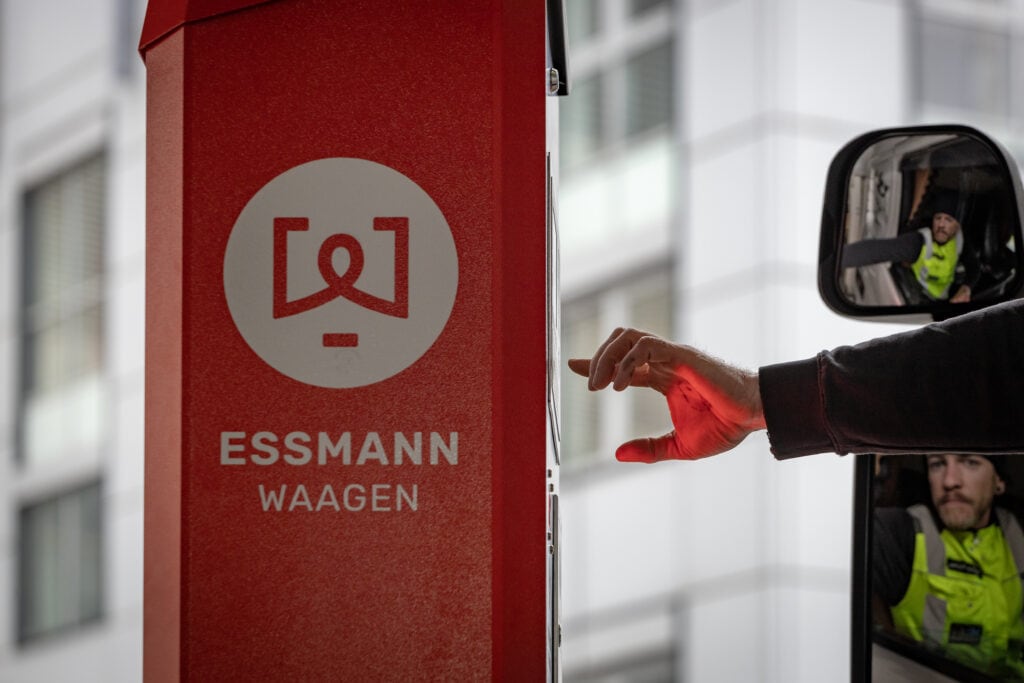
Terminals with touchscreens replace conventional control stations and offer intuitive multilingual operation. In combination with barriers and traffic light systems, a yard guidance system is created that directs traffic safely and quickly. These technologies make operations simpler and more efficient, especially where staff are scarce or change frequently.
Full-service provider: All scales, all services
In view of the many technical components – from vehicle and laboratory scales to sensors, software and network infrastructure – it is worth bringing a specialist company on board as a partner who can supply everything from a single source. If hardware and software are coordinated from the outset, the susceptibility to errors is reduced and there is a clear point of contact for the entire system.
A full-service provider such as Essmann Waagen & Automation takes care of everything: planning, foundation construction, delivery and installation of the scales, implementation of the software developed in-house in existing systems, initial calibration, staff training and long-term maintenance. This means that the customer has a single point of contact for all matters, saves time in the event of a fault and receives a coherent overall system. The long-established company with its headquarters in Hamburg and branches throughout Germany is one of the few specialist weighing companies on the European market that can offer the full range of services. Founded in 1860, the company is celebrating its 165th anniversary this year.
Republished with the kind permission of the editors of GP Gesteinsperspektiven

